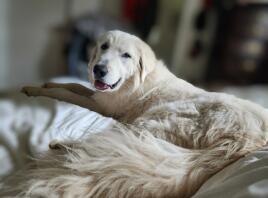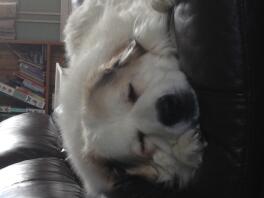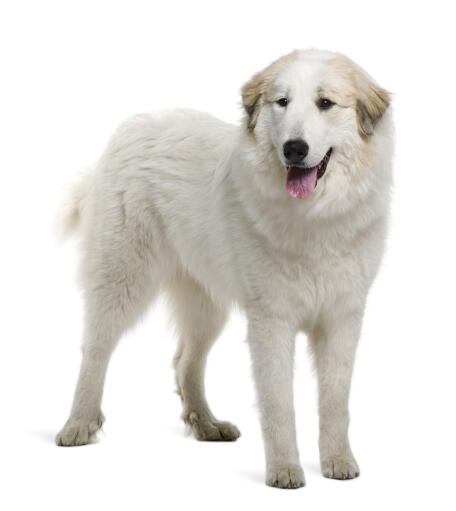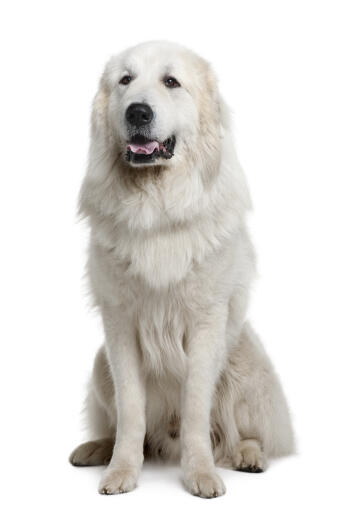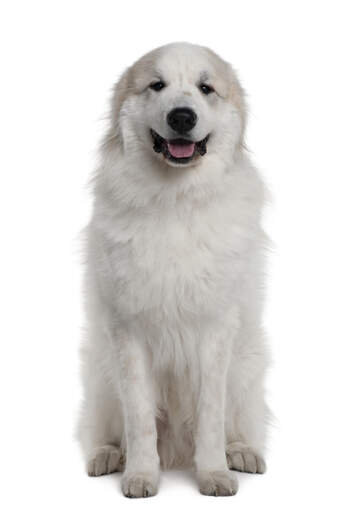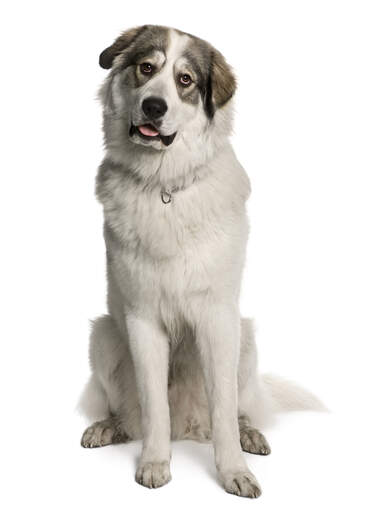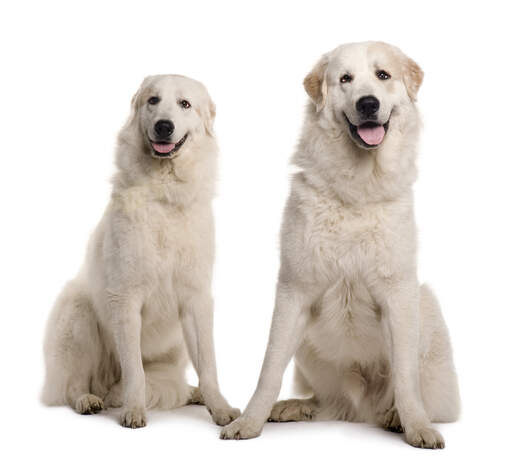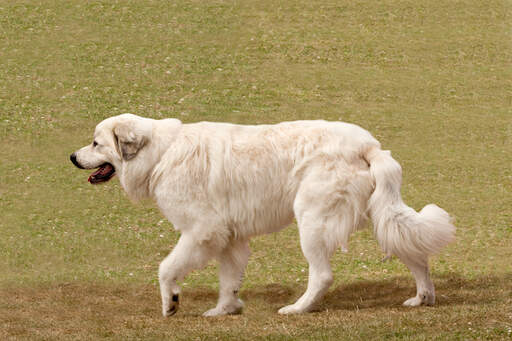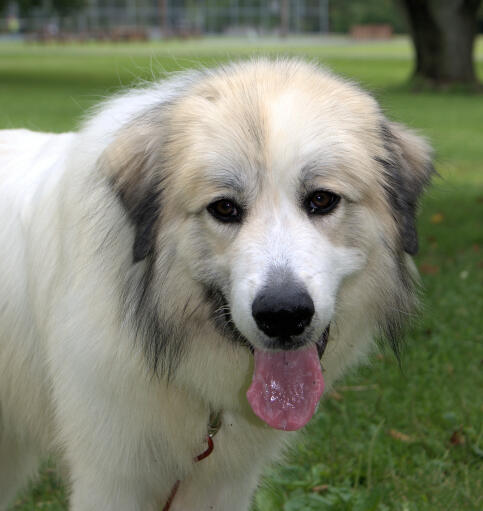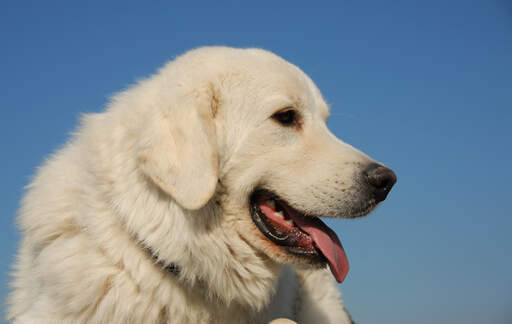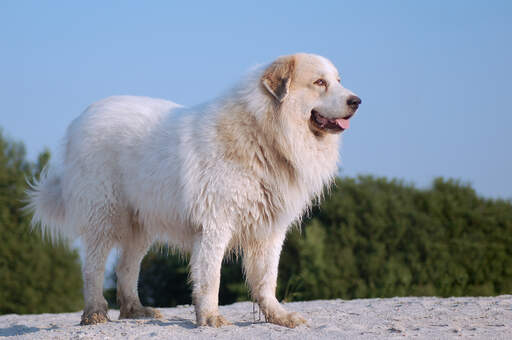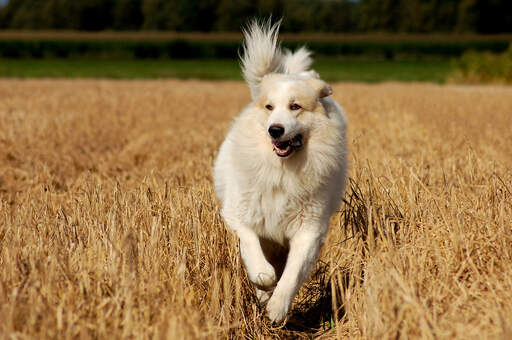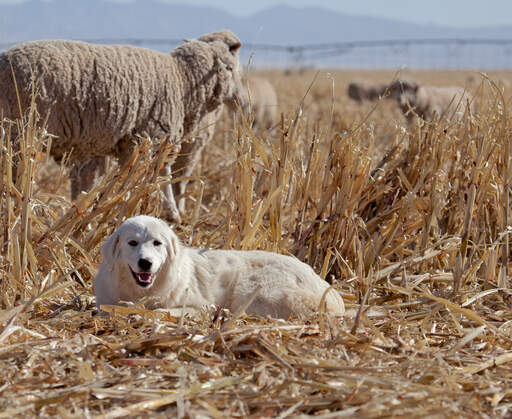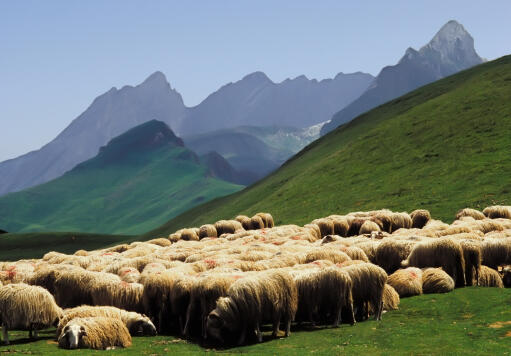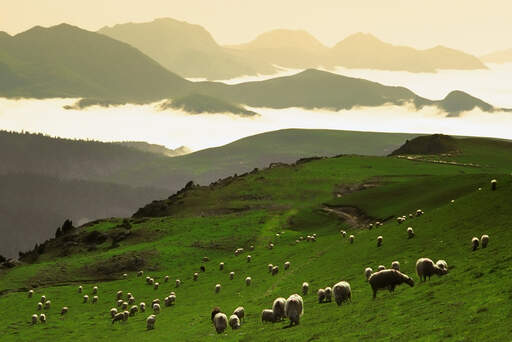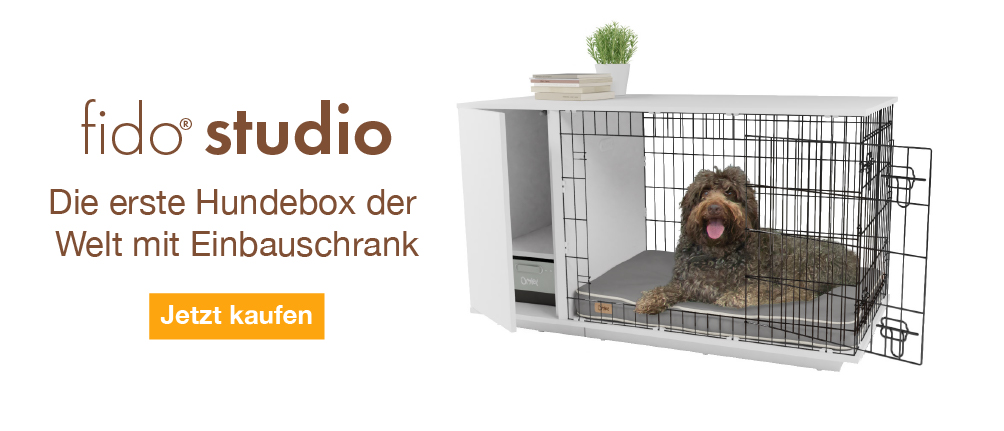Pyrenäenberghund













Geschichte
The Pyrenean Mountain Dog (UK) or Great Pyrenees (U.S) is an ancient breed dating back hundreds (if not thousands) of years. Bred as a guardian of sheep/goats, it was once considered to be a dog owned by pheasants. In 1675, Louis XIV made it the royal dog of France and it soon became popular with all classes. It was at this point that the bred excelled as guard dogs, watching out on large estates. After the Second World War, numbers were seriously down, probably due to the cost of keeping such a large breed. However, breeding programmes started up again and today it is very popular breed.
Verhalten
The Pyrenean Mountain Dog (PMD) is a huge bundle of love. They adore being around people and are often used as therapy dogs due to their soft fur and loving nature. They are brilliant around children and within a family, but can become protective if you aren't careful. They get on well with other dogs and love to play, though they are mindful of their size when playing. This is not the case at home. They will want to squeeze next to you in the armchair, sofa or bed; they like to be comfortable. PMDs have incredible hearing and make good watchdogs. Their bark is loud, so you will have to teach them to stop barking on command. PMDs are independent and were bred to think for themselves; this can make them stubborn sometimes. They need calm, kind, patient and positive training to get the best out of them. They learn slowly but never forget anything - the good and the bad. They are a docile breed, happy to plod along at their own pace. Being with you is all that matters, plus somewhere comfy to take a nap. They require lots of socialisation as puppies/young adults. Meeting new people and dogs is always important with any dog, but more so with such a large breed. Getting this right at an early stage makes for a gentle, well rounded dog. PMDs seem to be able to 'read' their owners and will offer a comforting nudge when they think you need it. They like being very close to you and will offer a paw to let you know they are there. They do not need much exercise, being a large breed but not an energetic one. They do enjoy being outside and will walk along, next to you on a lead. Given the chance to play with you or a dog will excite them, but when they have had enough they will walk away.
They shed a lot of fur all year, but their annual moult will result in fur everywhere. They will need brushing a couple of times per week to keep them looking tidy. Pyrenean Mountain Dogs are very slow to mature, usually filling out by the time they are 3 years old. They can suffer Bloat (gastric torsion) and Canine Hip Dysplasia, which is most common in larger breeds. They can also suffer ear complaints.
Charakter
Pyrenean Mountain Dogs have a majestic and composed temperament. Large dogs bred to be capable of defending a flock from wolves this dog really is a steadfast guardian. They will be devoted to their families and wary of strangers who they may perceive as a threat. Loud dogs with a booming bark you will struggle to keep them quiet through the night.
Gesundheitliche Probleme
Health problems that may affect Pyrenean Mountain Dogs include canine hip dysplasia (CHD), cancer, luxating patellar (dislocation of the knee cap), entropion (inward rolling of the eye lid which can irritate the eyeball), heart disease and allergies.
Einzelheiten zur Rasse
- Status: Common
- Lebenserwartung: 10 - 11 years
- Gewicht: 50 - 59 kg
- Höhe: 25 - 32"
- Selten: Nein
- Fell: Mittel
- Pflegeanforderungen: Mehr als einmal pro Woche
- Stadt oder Land: Beides
- Mindestanforderungen an Umgebung: Großes Haus
- Mindestanforderungen an Garten: Kleiner bis mittelgroßer Garten
- Rassetyp: Weidehund
- Größe: Giant
- Energieniveau: Niedrig
- Benötigte Bewegung: Bis zu einer Stunde
Fotos der Rasse
